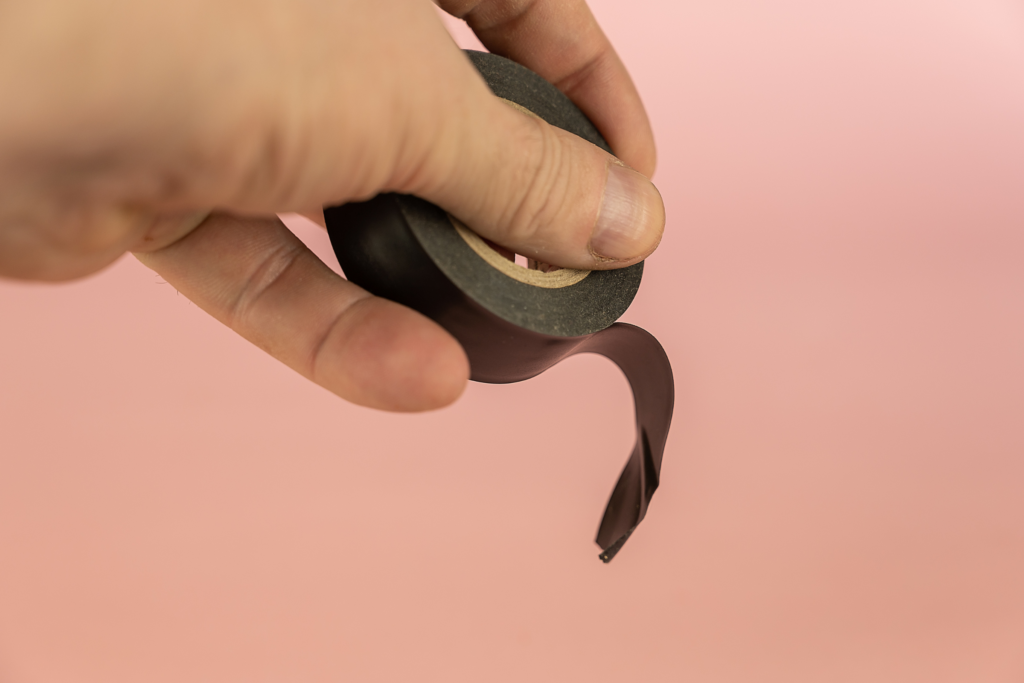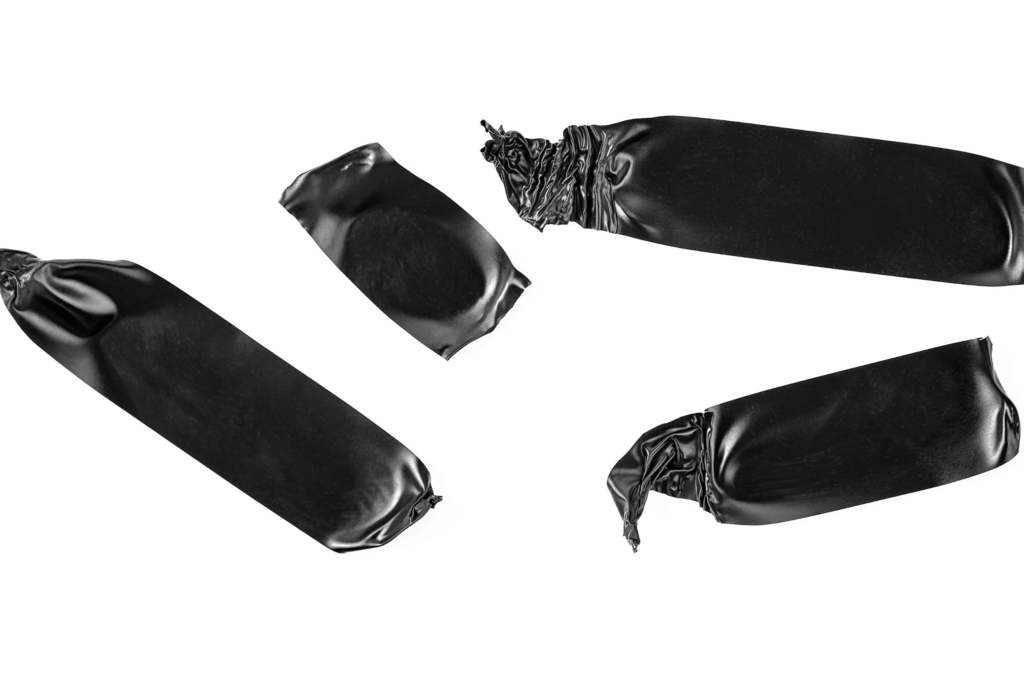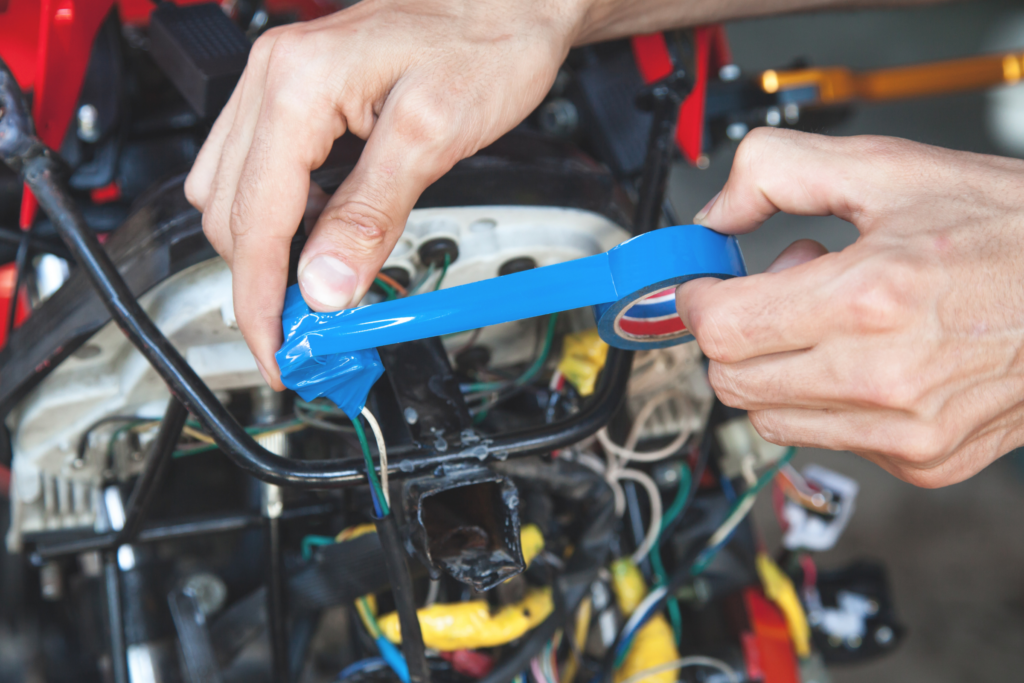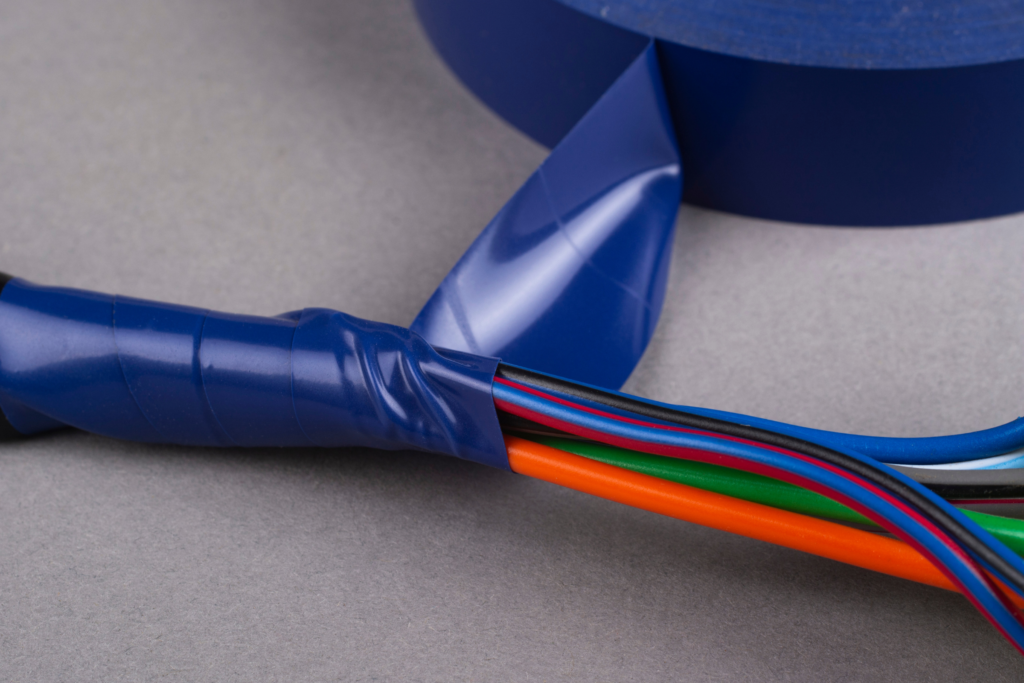Black Gorilla Tape vs Electrical Tape (Pros, Cons, Differences, Similarities)
When it comes to completing a DIY project or tackling an at-home repair, the right type of tape makes all the difference. You may come across two popular options: Gorilla Tape and electrical tape. Both tapes serve different purposes, but if you are comparing Gorilla tape vs electrical tape them you likely have some questions.
Gorilla tape is made of a durable cloth-like material that is water and weather-resistant and great for heavy-duty repairs and outdoor projects such as repairing gaps, holes, and tears. Electrical tape, on the other hand, is designed specifically for insulating electrical wires and while it is flexible and stretchable, it is not meant to be used for repairs or outdoor projects.
In this article, we’ll explore the key differences between Gorilla Tape and electrical tape, their respective use cases, and how to determine the ideal tape for your specific project.
Gorilla Tape vs Electrical Tape – comparison of features

When it comes to Gorilla tape vs electrical tape it really comes down to what you are using the tape for.
Gorilla tape is meant to serve as a better version of standard duct tape to patch, repair or hold things together either in place of or as a semi-permanent fix. Electrical tape is really only meant for one thing – insulating electrical wires so that they won’t short or electrocute someone.
| Gorilla Tape | Electrical Tape | |
|---|---|---|
| Adhesive Properties | Strong, rubber-based adhesive. Twice as thick. Fills gaps. Adheres to rough surfaces like wood, stucco, and metal. Suitable for indoor and outdoor. | Milder adhesive. Designed for insulating wires. Doesn’t fill gaps. Not ideal for rough surfaces. |
| Versatility and Applications | Water-resistant. Durable. Suitable for: Rough surfaces, Structural repairs, Outdoors and damp environments. | Designed for: Insulating electrical wires, Covering minor damages in wires. Not recommended for structural repairs or uneven surfaces. |
| Cost and Value | More expensive. High strength and durability. Offers value in its adhesive strength and versatility. | Generally cheaper. Perfect for its primary purpose. Lacks strength and versatility of Gorilla Tape. |
| Safety and Risks | Not recommended as a substitute for electrical tape. Might not protect against electrical hazards. | Designed to insulate against electrical currents, reducing fire risks. |
Adhesive Properties
Gorilla Tape has a strong, rubber-based adhesive that provides superior sticking power compared to standard electrical tape. Its adhesive is twice as thick, allowing it to fill gaps and adhere to even rough surfaces like wood, stucco, and metal. This makes it suitable for both indoor and outdoor applications.
Electrical tape, on the other hand, has a milder adhesive primarily designed for insulating electrical wires. Unlike Gorilla Tape, it doesn’t have the same gap-filling properties and isn’t ideal for sticking to rough surfaces.
Versatility and Applications
Gorilla Tape excels in versatility, with its water resistance and durability making it a popular choice for various repairs and DIY projects.
It can be used:
- On rough surfaces
- For structural repairs
- Outdoors and in damp environments
Electrical tape, as the name suggests, is primarily designed for:
- Insulating electrical wires
- Covering and protecting minor damages in wires
Keep in mind that electrical tape is not recommended for structural repairs or uneven surfaces.
Cost and Value
While Gorilla Tape may be more expensive than standard electrical tape, its value is in its strength and durability.
By providing stronger adhesion and gap-filling properties, it’s worth the investment for many repair jobs. Electrical tape is generally cheaper and perfect for its intended purpose of insulating wires but lacks the strength and versatility of Gorilla Tape.
Safety and Risks
Electrical tape is specifically designed to provide insulation against electrical currents, reducing fire risks.
Using Gorilla Tape as a substitute for electrical tape is not recommended, as it might not provide the same level of protection against electrical hazards. Stick to using electrical tape for electrical work and Gorilla Tape for other heavy-duty jobs to ensure safety.
Can you use Gorilla tape as electrical tape?
Importantly, Gorilla tape SHOULD NOT be used instead of electrical tape because it is not designed to insulate against electrical current. For small or quick jobs, electrical tape COULD work in a pinch as a substitute for Gorilla tape.
Overview of Gorilla Tape

What is Gorilla Tape?
Black Gorilla Tape is a heavy-duty adhesive tape specifically designed for the toughest jobs on planet Earth. It’s made with a highly concentrated rubber-based adhesive, making it stronger and more durable than regular duct tape.
This powerful adhesive enables it to stick to various surfaces, including metal, wood, brick, and plastic, even in outdoor conditions.
Personally, I use Gorilla Tape all the time for quick patches and fixes both inside and outside the house. It’s great!
Gorilla Tape Uses
You can use Gorilla Tape for a wide range of purposes:
- Repair damages to various surfaces (metal, wood, brick, plastic)
- Fill gaps and holes on rough surfaces
- Insulate and provide moisture protection in outdoor settings
- Patch holes in various materials, including tile, glass, and cement
- Fix plumbing issues and waterproof connections
- Secure items and materials under extreme conditions
Advantages and Drawbacks of Gorilla Tape
Advantages:
- Stronger adhesive: Gorilla Tape has a higher adhesive strength compared to regular duct tape, making it ideal for heavy-duty repair tasks.
- Durability: It’s built to withstand harsh conditions, including exposure to sun, water, and weather elements, ensuring lasting repairs.
- Versatility: Gorilla Tape can be used on a multitude of surfaces, such as metal, wood, brick, plastic, and even rough outdoor surfaces.
- Waterproof: The rubber-based adhesive adds a layer of waterproof protection, preventing moisture from entering or causing damage.
Drawbacks:
- Price: Gorilla Tape is generally more expensive than regular duct tape, which may influence your choice depending on your budget.
- Residue: It may leave a sticky residue on some surfaces, especially if removed too soon after application.
- Alternatives: While Gorilla Tape has several advantages over standard duct tape, other specialty tapes, such as electrical tape, may be more suitable for specific tasks, like insulating electrical wires.
In conclusion, Gorilla Tape is a versatile and heavy-duty adhesive, perfect for tackling the toughest repair jobs. It’s designed to stick to various surfaces while providing durability and water resistance. However, it’s important to consider its price and suitability for your specific needs before choosing it over other tapes.
Overview of Electrical Tape
What is Electrical Tape?
Electrical tape, commonly made from vinyl or rubber, is an insulating tape used in various electrical applications. It has a rubber-based adhesive that allows it to stick to many surfaces and remain flexible. Electrical tape is designed to provide protection against electrical currents and prevent short circuits or electrical fires.

Electrical Tape Uses
Here are some common uses for electrical tape:
- Insulating electrical wires: Electrical tape is used for insulating electrical wire joints and preventing electrical currents from flowing where they should not.
- Repairing damaged cables: If a cable becomes damaged, you can wrap electrical tape around the affected area to restore insulation.
- Securing wires and cables: You can use electrical tape to keep wires and cables in place or hold them together.
- Providing color-coding to wires and cables: Electrical tape comes in various colors, making it easy to identify and organize wires in electrical systems.
- Protecting indoor connections: Electrical tape is suitable for indoor applications, as it is generally not UV-resistant or suitable for prolonged outdoor exposure.
Advantages and Drawbacks of Electrical Tape

Advantages:
- Flame-retardant: Electrical tape is often flame-retardant, reducing the risk of electrical fires.
- Good insulator: The tape provides good insulation, which is essential when working with electrical wires and cables.
- Flexible: Its flexibility allows it to adapt to different surfaces and shapes, making it an excellent choice for various electrical projects.
- Affordable: Electrical tape is relatively inexpensive compared to other insulating materials.
Drawbacks:
- Limited durability: Over time, electrical tape can deteriorate, lose its adhesion, and potentially expose the wire, leading to electrical hazards.
- Not suitable for outdoor use: Most electrical tape types are not UV-resistant or waterproof, making them unsuitable for long-term outdoor applications.
- Inferior adhesion compared to some alternatives: While electrical tape is sufficient for many applications, some alternatives, like gorilla tape, offer better adhesion and durability.
Remember, when working with electrical wires and cables, it is crucial to use the proper tools and equipment and follow safety guidelines. While electrical tape can be a useful resource for DIY projects, it may not always be the best choice, depending on the specific circumstances. Therefore, always consider the advantages and drawbacks of electrical tape before using it.
Let Us Know How We’re Doing!
Did this expertly prepared resource answer your question?
Do you have another question about home maintenance, home improvement projects, home appliance repair, or something else?
Get more information, send in questions and keep the discussion going by contacting the I’ll Just Fix It Myself company customer service team at at 1-800-928-1490 or Email us at [email protected]
